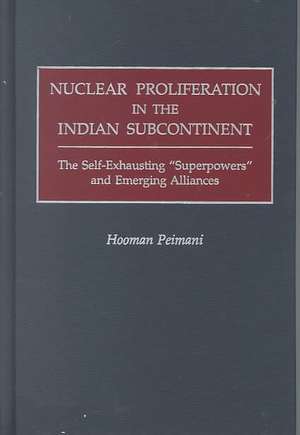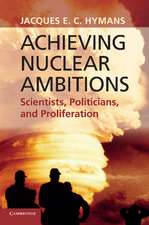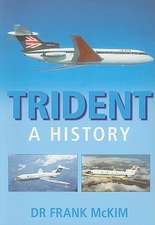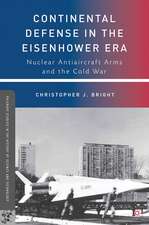Nuclear Proliferation in the Indian Subcontinent: The Self-Exhausting Superpowers and Emerging Alliances
Autor Hooman Peimanien Limba Engleză Hardback – 29 aug 2000 – vârsta până la 17 ani
Preț: 350.97 lei
Preț vechi: 432.14 lei
-19% Nou
Puncte Express: 526
Preț estimativ în valută:
67.17€ • 69.86$ • 55.45£
67.17€ • 69.86$ • 55.45£
Carte tipărită la comandă
Livrare economică 14-28 aprilie
Preluare comenzi: 021 569.72.76
Specificații
ISBN-13: 9780275967048
ISBN-10: 0275967042
Pagini: 168
Dimensiuni: 140 x 216 x 19 mm
Greutate: 0.28 kg
Ediția:New.
Editura: Bloomsbury Publishing
Colecția Praeger
Locul publicării:New York, United States
ISBN-10: 0275967042
Pagini: 168
Dimensiuni: 140 x 216 x 19 mm
Greutate: 0.28 kg
Ediția:New.
Editura: Bloomsbury Publishing
Colecția Praeger
Locul publicării:New York, United States
Notă biografică
HOOMAN PEIMANI is an independent consultant who works with international agencies in Geneva and does research in international relations. His earlier research and writing has centered on the Persian Gulf, the Caucasus, and Central Asia. Earlier publications include Regional Security and the Future of Central Asia: The Competition of Iran, Turkey, and Russia (Praeger, 1998) and Iran and the United States: The Rise of the West Asian Regional Grouping (Praeger, 1999).
Cuprins
IntroductionThe Indian and Pakistani Nuclear Programs: History and ObjectivesPolitical Implications of the May 1998 TestsMajor Impediments in the Way of ProgressThe Creation of AlliancesConclusionBibliographyIndex










